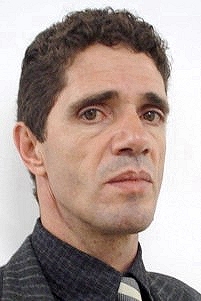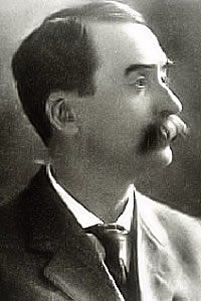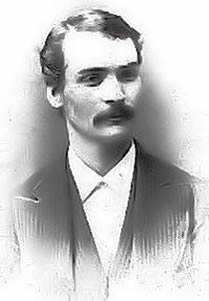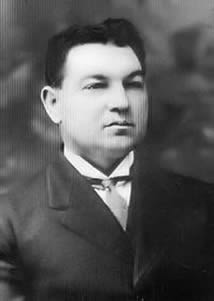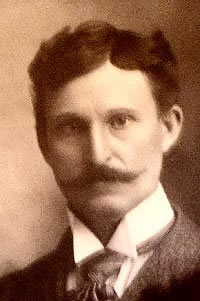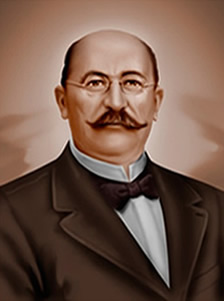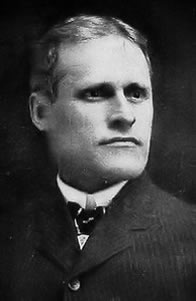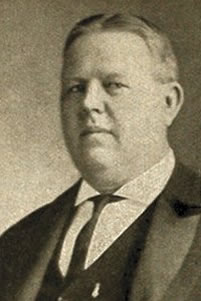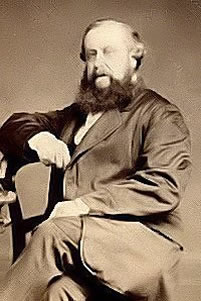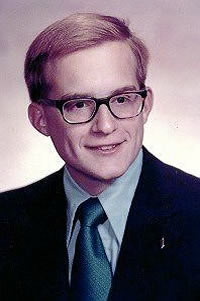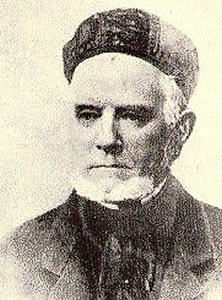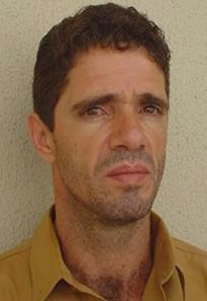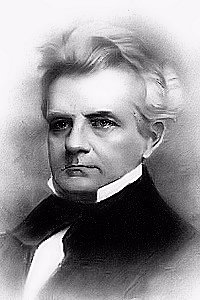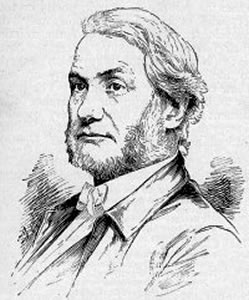Jesus Vem Convidar
“The Call of The Christ”
Letra: Daniel Borges, 2005.
Música: Charles Hutchinson Gabriel, (1856-1932). Many of which are available in 21st century hymnals. He used several pseudonyms and some hymnals we will see Gabriel’s pseudonyms as Charlotte G. Homer, H. A. Henry, and S. B. Jackson. [ ![]() —
— ![]() —
— ![]() ].
].
→ James era filho de John Rowe. Trabalhou numa mina de cobre para o governo irlandês durante quatro anos, depois emigrou para a América aos 24 anos de idade. Instalou-se em Albany, Nova Iorque, e trabalhou na ferrovia em Nova Iorque durante 10 anos. Se tornou um inspetor pela Sociedade Humanitária Rio Hudson.
Depois disso trabalhou em editoras de música no Texas e Tennessee. Mudou-se então para Vermont e trabalhou com sua filha, um artista, escrevendo versos em cartões de visita. De acordo com a filha, Rowe e Smith escreveram esta canção em Saugatuck, Connecticut. Smith era um organista da igreja em Connecticut.
→ James was Son of John Rowe, a copper miner, James worked for the Irish government for four years, then emigrated to America at age 24. He settled in Albany, New York, and worked in railroads in New York for 10 years.
He then became an inspector for the Hudson River Humane Society. He then worked for music publishers in Texas and Tennessee, and in his later years, moved to Vermont and worked with his daughter, an artist, writing verses for greeting cards. Rowe and Smith wrote this song in Saugatuck, Connecticut. According to Rowe’s daughter. Smith was a church organist in Connecticut.
Jesus me Transformou – Borges
“Love Lifted Me”
Daniel Borges – Tradução Literal
Letra: “Love Lifted me”, James Rowe, 1912. Tradução – não convencional – literal por Daniel Borges, 2010.
Música: Howard E. Smith, (1863-1918). [ ![]() —
— ![]() —
— ![]() ].
].
→ James era filho de John Rowe. Trabalhou numa mina de cobre para o governo irlandês durante quatro anos, depois emigrou para a América aos 24 anos de idade. Instalou-se em Albany, Nova Iorque, e trabalhou na ferrovia em Nova Iorque durante 10 anos. Se tornou um inspetor pela Sociedade Humanitária Rio Hudson.
Depois disso trabalhou em editoras de música no Texas e Tennessee. Mudou-se então para Vermont e trabalhou com sua filha, um artista, escrevendo versos em cartões de visita. De acordo com a filha, Rowe e Smith escreveram esta canção em Saugatuck, Connecticut. Smith era um organista da igreja em Connecticut.
→ James was Son of John Rowe, a copper miner, James worked for the Irish government for four years, then emigrated to America at age 24. He settled in Albany, New York, and worked in railroads in New York for 10 years.
He then became an inspector for the Hudson River Humane Society. He then worked for music publishers in Texas and Tennessee, and in his later years, moved to Vermont and worked with his daughter, an artist, writing verses for greeting cards. Rowe and Smith wrote this song in Saugatuck, Connecticut. According to Rowe’s daughter. Smith was a church organist in Connecticut.
[ See in English Love Lifted Me and also translation by Ginsburg see also Cyberhymnal ]
Jesus me Transformou – Ginsburg Jesus Vem Convidar
Jesus me Transformou – Ginsburg
“Love Lifted Me”
Letra: “Love Lifted me”, James Rowe, 1912. Rowe & Smith wrote this song in Saugatuck (now part of Westport), Connecticut. Tradução do inglês para o português por Salomão Luiz Ginsburg, (1867-1927).
Música: Howard E. Smith, (1863-1918). [ ![]() —
— ![]() —
— ![]() ].
].
→ James era filho de John Rowe. Trabalhou numa mina de cobre para o governo irlandês durante quatro anos, depois emigrou para a América aos 24 anos de idade. Instalou-se em Albany, Nova Iorque, e trabalhou na ferrovia em Nova Iorque durante 10 anos. Se tornou um inspetor pela Sociedade Humanitária Rio Hudson.
Depois disso trabalhou em editoras de música no Texas e Tennessee. Mudou-se então para Vermont e trabalhou com sua filha, um artista, escrevendo versos em cartões de visita. De acordo com a filha, Rowe e Smith escreveram esta canção em Saugatuck, Connecticut. Smith era um organista da igreja em Connecticut.
→ James was Son of John Rowe, a copper miner, James worked for the Irish government for four years, then emigrated to America at age 24. He settled in Albany, New York, and worked in railroads in New York for 10 years.
He then became an inspector for the Hudson River Humane Society. He then worked for music publishers in Texas and Tennessee, and in his later years, moved to Vermont and worked with his daughter, an artist, writing verses for greeting cards. Rowe and Smith wrote this song in Saugatuck, Connecticut. According to Rowe’s daughter. Smith was a church organist in Connecticut.
→ Salomão Luiz Ginsburg, nasceu em 06/08/1867 e faleceu em:31/03/1927: Judeu convertido ao cristianismo, saíu da sua terra natal para a Inglaterra, onde foi evangelizado. Protestante, Missionário da Igreja Batista e Ministro, fundou o jornal “As Boas Novas”
I Surrender All
“Tudo Entregarei”
Letra: Judson Wheeler Van DeVenter, 1896. Published in The Young People’s Hymnal, edited by James Atkins & William James Kirkpatrick, (1838–1921) (Nashville, Tennessee: Publishing House, Methodist Episcopal Church, South, 1897), number 7.
Música: “I Surrender All”, Wilfield Scott Weeden, 1896. Weeden published a number of books of religious music, but this song must have been one of his favorites: its title was on his tombstone. [ ![]() —
— ![]() —
— ![]() ].
].
→ The song was written while I was conducting a meeting at East Palestine, Ohio, in the home of George Sebring (founder of the Sebring Campmeeting Bible Conference in Sebring, Ohio, and later developer of the town of Sebring, Florida). For some time, I had struggled between developing my talents in the field of art and going into full-time evangelistic work. At last the pivotal hour of my life came, and I surrendered all. A new day was ushered into my life. I became an evangelist and discovered down deep in my soul a talent hitherto unknown to me. God had hidden a song in my heart, and touching a tender chord, He caused me to sing.
→ A canção foi escrita enquanto eu estava conduzindo uma reunião na Palestina Oriental, Ohio, na casa de George Sebring (fundador da Sebring Campmeeting Bible Conference in Sebring, Ohio, e desenvolvedor posterior da cidade de Sebring, na Flórida). Por algum tempo, eu tinha lutado entre desenvolver meus talentos no campo da arte e entrar em trabalho evangelístico em tempo integral. Finalmente, chegou a hora crucial da minha vida, e eu entreguei tudo. Um novo dia foi introduzido na minha vida. Eu me tornei um evangelista e descobri no fundo de minha alma um talento até então desconhecido para mim. Deus tinha escondido uma canção em meu coração, e tocando um acorde terno, Ele me fez cantar.
[ Literal translation by Borges & original lyrics by Nind ]
Inocentes, Nós? Jesus me Transformou – Ginsburg
Inocentes, Nós?
“Innocents, We?”
Letra: “Inocentes, nós?”, Daniel Borges, 2005.
Música: “Innocents”, The Parish Choir, 1850; harmonizado por William Henry Monk, 1861. [ ![]() —
— ![]() —
— ![]() ].
].
The God of Holiness and Love I Surrender All
The God of Holiness and Love
“O Deus de Santidade e Amor”
Letra: “The God of Holiness and Love”, Daniel Borges, 2004-5. ( O Deus de Santidade e Amor ); tradução do inglês para o português por Daniel Borges e Richard W. Adams, 2005.
Música: “Meribah”, Lowell Mason, 1839. [ ![]() —
— ![]() —
— ![]() ].
].
[ See in Portuguese O Deus de Santidade e Amor also in Cyberhymnal ]
Feliz eu Sou
“I am Happy”
Letra: “Feliz eu Sou”, Daniel Borges, 2005.
Música: “Māori music, or Te Pūoro Māori”, traditional melody that is composed or performed by Māori, the native people of New Zealand. [ ![]() —
— ![]() —
— ![]() ].
].
Eu Sigo o Salvador The God Of Holiness And Love
Eu Sigo o Salvador
“Savior! I Follow On”
Letra: “Savior! I Follow On”, Charles Seymour Robinson, Songs of the Church 1862; traduzido do Inglês para o Português por Daniel Borges, 2005.
Música: “Bethany (Mason)”, Lowell Mason, 1856. [ ![]() —
— ![]() —
— ![]() ].
].

